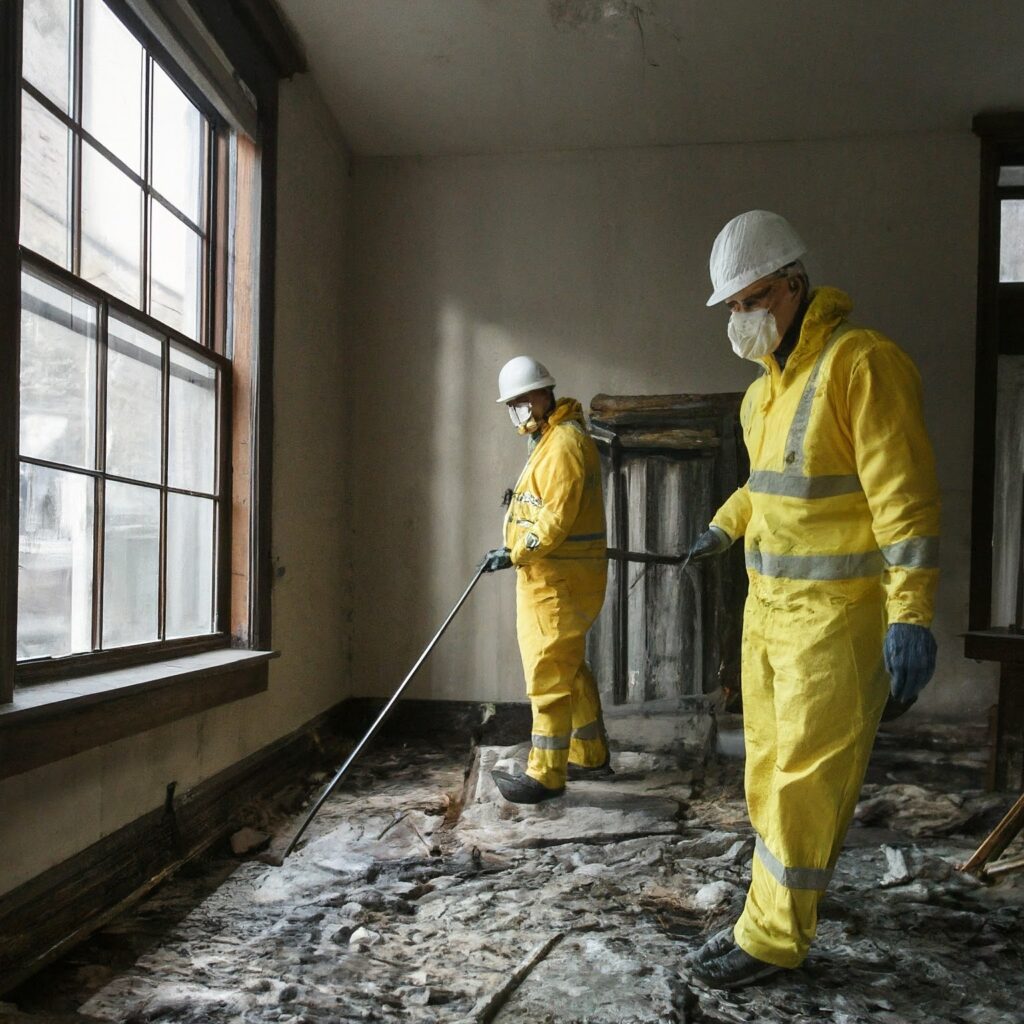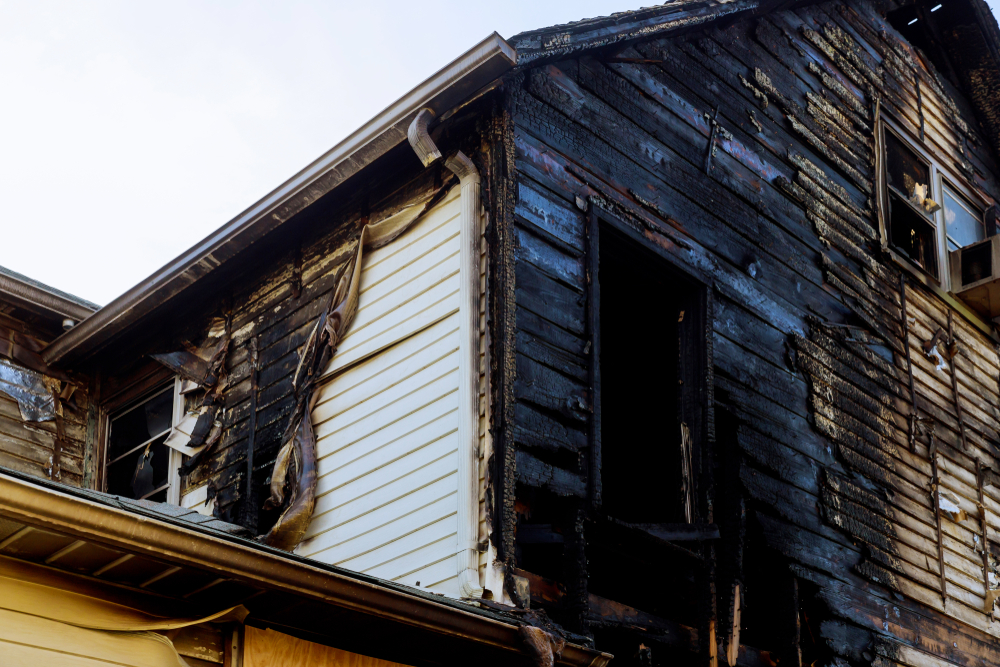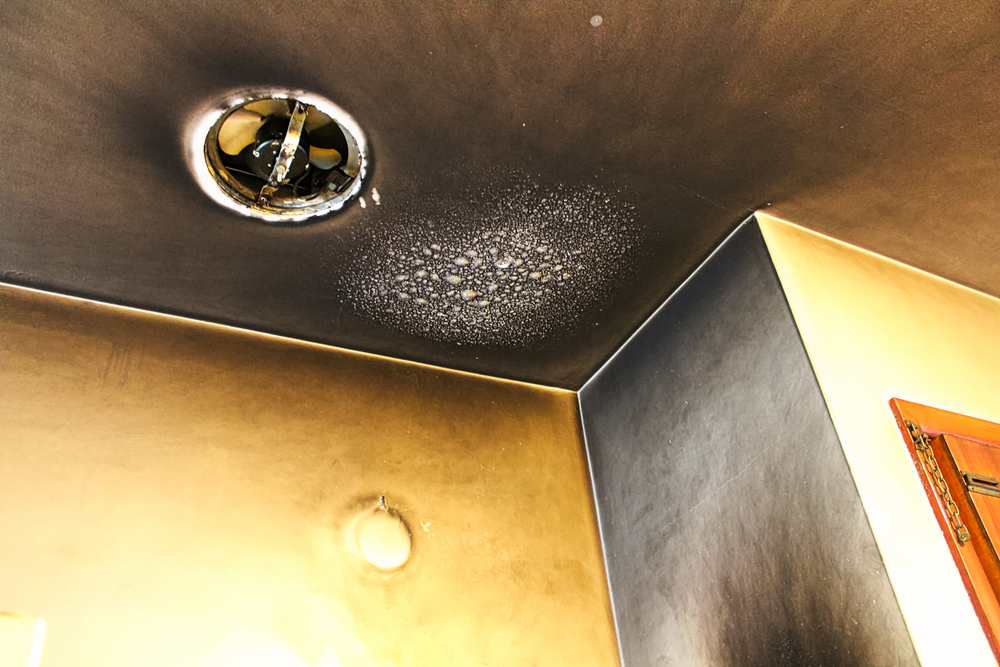Among the most catastrophic occurrences a house owner can go through is a fire. Clearly visible are the immediate hazards— flames and heat—but the dangers don’t stop when the fire goes out. Many people are unaware of the long-term health hazards fire damage can produce.
Beyond the obvious damage, fire produces poisonous smoke, soot, ash, and even dangerous substances that could compromise the indoor air quality. Additionally developing from the water used to put out the fire is mold. Ignorance of these risks might cause major health issues for your family and yourself. Professional fire damage restoration is therefore absolutely essential to maintain the safety and integrity of your house.
Fire damage in your home indoor atmosphere and general well-being in addition to the construction of your house. Long after the fire is out, lingering pollutants can still be found in walls, furniture, and air ducts, therefore constantly exposing residents to dangerous chemicals. Protecting yourself and your loved ones starts with knowing the whole spectrum of fire-related health hazards.
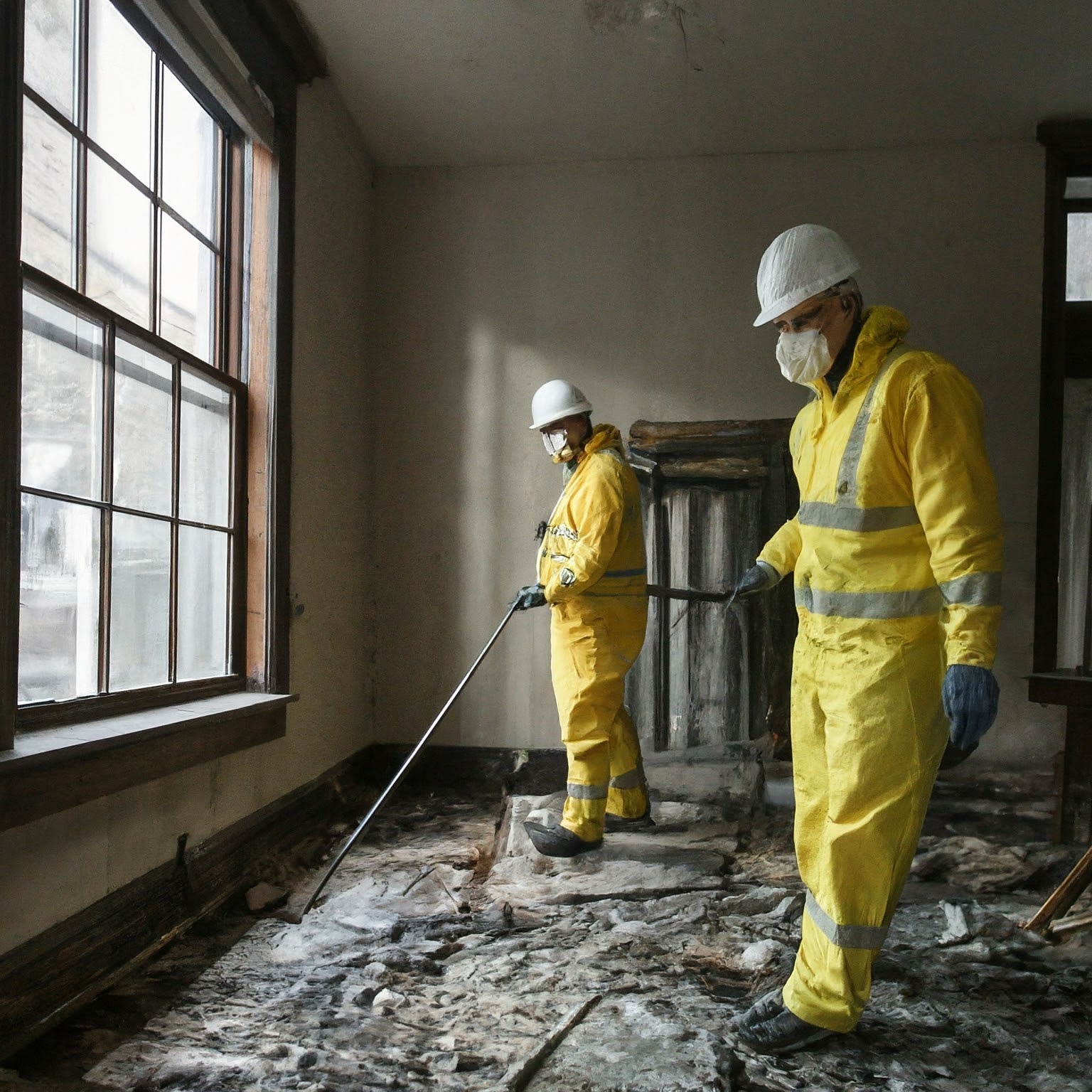
Health Hazards Associated with Fire Damage
1. Smoke Inhalation
Among the most deadly features of a fire is smoke. Remains of smoke can still be dangerous even if you were not inside the house during the fire.
Health Risks of Smoke Inhalation:
- Immediate Effects: The immediate effects of smoke can be trouble breathing and irritation of your eyes, nose, and throat. Along with nausea, headaches, and vertigo, it can also aggravate
- Long-Term Effects: Extended contact could cause respiratory problems including bronchitis, asthma, even lung damage. Another major concern is carbon monoxide poisoning, which can induce confusion, chest discomfort, and in severe cases death.
- Particulate Matter Risks: Fine particulate matter in smoke can get deep into the lungs and aggravate pre-existing diseases including heart disease by producing inflammation.
- Children and Elderly at Higher Risk: Young children, elderly adults, and those with respiratory problems are most sensitive to the consequences of smoke inhalation.
2. Soot and Ash Exposure
Little soot and ash particles build on surfaces all around your house following a fire. Though they seem innocuous, these particles can have harmful chemicals that greatly compromise human health.
Health Risks of Soot and Ash:
- Inhaling soot aggravates COPD or asthma and causes lung inflammation.
- Skin irritability and rashes can result from contact with soot and ash.
- Little particles might aggravate your eyes and cause redness and soreness.
- Heavy metals, dioxins, and other carcinogens including some soot particles can have long-term health consequences.
3. Mold Growth
Large volumes of water used in firefighting operations often soak into floor, ceiling, and wall surfaces. If not dried rapidly, this moisture provides the ideal habitat for mold development.
Health Risks of Mold:
- Allergies brought on by mold spores cause sneezing, coughing, and itching eyes.
- Extended exposure might aggravate chronic sinus infections and aggravate respiratory problems.
- Toxins produced by some molds can cause major medical problems including neurological problems.
- Mold exposure has been connected to immune system suppression, which increases a person’s susceptibility to illnesses.
- Particularly black mold is linked to major health hazards including mycotoxin toxicity, which may compromise cognitive ability.
4. Chemical Exposure
Many domestic items burn releasing dangerous toxins. This will cover flooring, insulation, and furniture.
Harmful Chemicals Released by Fire Damage:
- Asbestos: Found in older dwellings, asbestos fibers can fly and aggravate lung conditions if breathed in.
- Lead: Older houses might have lead-based paint, which, burned, can create poisonous dust.
- Volatile Organic Compounds (VOCs): Found in plastics and synthetic goods, volatile organic compounds (VOCs) can aggravate respiratory problems, headaches, and nausea.
- Formaldehyde: Released from burning pressed wood goods, formaldehyde can cause chronic respiratory problems and perhaps cancer.
- Hydrogen Cyanide: Some manmade materials release the dangerous chemical hydrogen cyanide, which can induce vertigo, nausea, and unconsciousness.
5. Mental Health Impacts
A house fire can have just as negative an emotional impact as it does physical health hazards. Stress, worry, and even post-traumatic stress disorder (PTSD) can follow from losing your house, possessions, and sense of security.
Mental Health Effects of Fire Damage:
- Financial loss and rebuilding anxiety.
- Depression brought caused by sentimental object loss.
- Problems sleeping and nightmares.
- trouble focusing or handling emotions.
- Stress rising from which physical health issues include high blood pressure and compromised immune response arise.
Overcoming these obstacles may depend critically on competent therapy and emotional support.
Protecting Your Health After a Fire
1. Immediate Actions
- Leave the area immediately: Immediately leave the area. Ste clear of chemicals, soot, and smoke.
- Seek medical attention: See a doctor right away if you find trouble breathing, vertigo, or other symptoms of smoke inhalation.
- Avoid touching fire-damaged materials: Steer clear of contacting things damaged by fire; soot and ash can include hazardous substances.
- Ventilate your home: If it is safe for you to return, open windows to air the house and clear residual smoke.
- Do not attempt to clean it yourself: Try not to clean it yourself. Restoring fire damage calls for specific tools to safely remove damaging residues.
- Wear protective gear: If you have to visit the house, don gloves, a N95 mask, and long-sleeved clothes.
2. Long-Term Considerations
- Air Quality Monitoring: Install air filters and look for residual smoke smells since these could point to continuous pollution.
- Thorough Cleaning: Professional thorough cleaning is required to remove chemicals from walls, furniture, and HVAC systems as well as soot.
- Mold Inspections: Professional mold testing and cleanup are quite vital since firefighting water can cause mold development.
- Mental Health Support: Counseling or community support groups help you negotiate the emotional fallout from a fire.
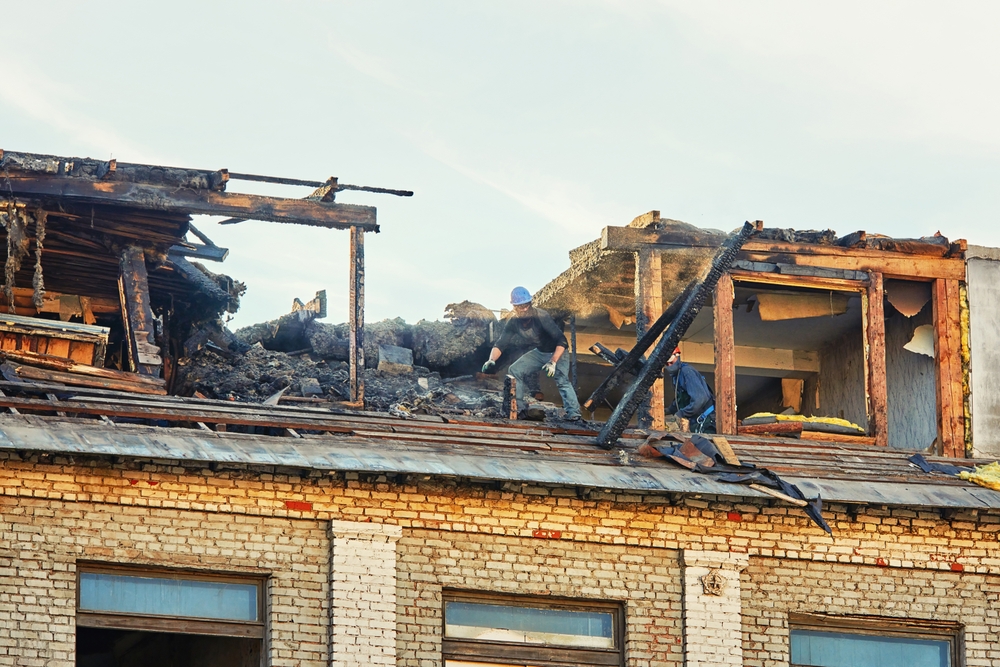
The Importance of Professional Restoration
Expert fire damage repair companies focus in safely and quickly cleaning up following a fire. Dealing with fire damage on your own runs the risk of aggravating the damage and releasing harmful pollutants.
Benefits of Hiring a Professional Restoration Service:
- Expertise in Identifying Hidden Dangers: Professionals in identifying hidden hazards are adept in locating and eliminating dangerous leftovers not always obvious.
- Specialized Equipment: To raise indoor air quality, they run dehumidifiers, HEPA vacuums, and industrial-grade air purifiers.
- Safe Chemical Removal: Safety rules are followed by restoration businesses to correctly dispose of dangerous chemicals.
- Mold Prevention: They guarantee that all moisture is eliminated so as to stop mold from growing.
- Structural Integrity Checks: Professionals evaluate whether the fire has compromised the integrity of your house and suggest required repairs.
Conclusion
Fire damage can affect your health as much as it damages property. If improperly handled, smoke, soot, mold, and dangerous chemicals can all cause major health issues. One major issue is mental health problems following a fire.
Seeking skilled fire damage repair services right away will help you and your loved ones stay safe. These professionals can guarantee that your house is free of dangerous toxins, clean, and safe.
If you or someone you know has had a house fire, don’t wait—reach out to a qualified restoration business right away to protect your home and health.
Philadelphia Restoration Services
https://www.google.com/maps?cid=3399342399556699153
+1 267 668 0013
https://philadelphiarestorationservices.com/

